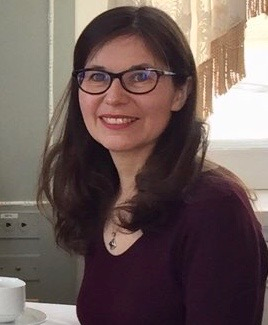Apryl Gladue expands the circle for Indigenous law students
Sarah Kent - 19 June 2020

Apryl Gladue, ‘98 LLB, the Indigenous Student Academic and Cultural Support Advisor at the University of Alberta Faculty of Law, jumped at the chance to return to the Faculty in a position that she had once turned to as an Indigenous law student.
“The very fact that that person was there, and I went to their office on the fourth floor, and spoke to them before I started law school...That made a world of difference. It told me that there was a place for me,” said Gladue.
She now offers the same welcome she received as a law student to the next generation of Indigenous lawyers.
To them, Gladue says, “We see you. We were you, so we know.”
Originally from High Prairie, Gladue is a member of the Woodland Cree First Nation with ties to the Lubicon Lake First Nation. She married into a Métis family with ties on one side to Gabriel Dumont and on the other side to Chief Papaschase.
Gladue has worked part time at UAlberta Law since fall 2018 and continues to practise as a lawyer at the federal Department of Justice, where she has worked since 1996 when she was a summer student. Her perspective as a practising lawyer is invaluable for the students she supports and the faculty members she advises.
In the early 1990s, UAlberta Law officially launched its Indigenous Law Program, the second in Canada, under the directorship of Métis legal scholar Larry Chartrand, ‘89 BEd. The program was partially created in response to the 1991 Commission Report of the Aboriginal Justice Inquiry.
Thirty years later, Gladue says the program is as necessary as ever as “there are not enough Indigenous lawyers.”
The vision is to “increase the Indigenous lawyers, practitioners, judges, alumni in the field with the aim of at least reaching the representation of what the Indigenous population is in Canada,” says Gladue.
The Ongoing Work of Reconciliation
Part of Gladue’s work at UAlberta Law is “dedicated towards those reconciliation initiatives with the faculty and staff, professors, the Dean’s Office, with everybody.”
“You need to build trust,” she said. “I’m in a position now that I feel like I have that trust and the dialogue is open.”
Gladue sits on the Curriculum sub-committee that addresses how to implement the Truth and Reconciliation Commission Call to Action #28, which asks law schools to require law students to take a course on Indigenous Peoples and the law.
“We can talk about it now, not that we couldn’t before, but people are listening now, addressing the systemic issues—racism, prejudice, stereotypes—in the legal system.”
Building relationships with the students is the most rewarding part of the job, says Gladue.
In the future, she would like to see a dedicated space in the Law Centre for Indigenous students to gather, where they can feel both safe and supported.
Gladue hopes that the Indigenous presence at UAlberta Law will continue to flourish, noting that the law school is hitting a critical mass of Indigenous scholars, staff, students and initiatives.
“We have a roadmap. We know where we need to go. We know how to get there.”
The Indigenous Law Program was set to celebrate its decades of success in June 2020, but the gathering was cancelled due to the pandemic. Gladue anticipates that an in-person celebration will be something many Indigenous alumni will look forward to when the public health restrictions allow.